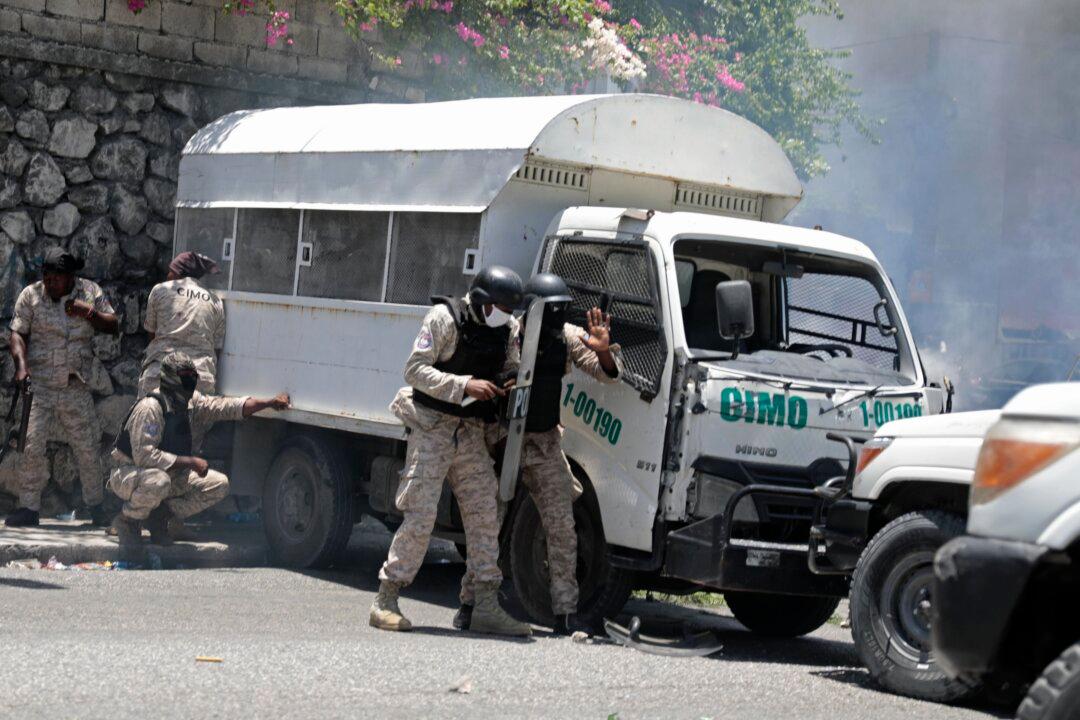The United States closed its embassy in Haiti on Aug. 8 due to people firing weapons nearby.
“The Embassy is closed today. All personnel are restricted to Embassy compounds until further notice due to gunfire in the vicinity of the Embassy,” the U.S. State Department said in a statement.





